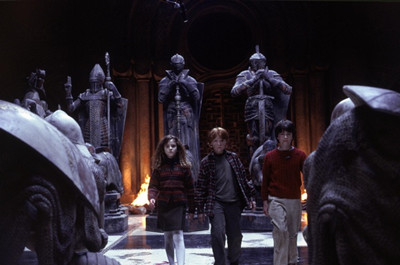一.play:v.玩, 比賽, (在運(yùn)動(dòng)隊(duì)中)擔(dān)當(dāng), 派...出場(chǎng), 帶, 踢,擊(球),走(棋子),出牌, 演奏, 播放, 扮演, 假裝, 上演,發(fā)揮(作用), 應(yīng)付, 處理,掠過(guò),浮現(xiàn),使輕快地活動(dòng), (噴泉)噴涌,做游戲 n.游戲, 戲劇, 比賽, 發(fā)揮作用, 玩笑, 間隙, 閃爍,閃現(xiàn)
【語(yǔ)法用法】
play單用時(shí),表示“玩某種游戲”,有時(shí)可說(shuō)play (at),如play (at) football;
play單用時(shí),還可表示“游玩”,但只限用于兒童,不可以用在成人身上。
These boys play in the garden every morning.
這些男孩們每天早晨都在花園里游玩。
play with表示“玩(某物)”,如play with a ball;
表示“彈奏(樂(lè)器)”,現(xiàn)習(xí)慣上但用play,而不是play (up)on,如play the violin。
【錯(cuò)句舉例與錯(cuò)句分析】
錯(cuò)句: When he was playing his toys, Tom came in.
訂正: When he was playing with his toys, Tom came in.
翻譯: 正當(dāng)他在玩他自己的玩具時(shí),湯姆進(jìn)來(lái)了。
分析: 表示“玩(某物)”時(shí),play后必須要加介詞with。
【例句用法】
I think we should play Bill on the wing in the next match.
我認(rèn)為下一場(chǎng)應(yīng)當(dāng)讓比爾任邊鋒。
I could hear music playing on the radio.
我聽(tīng)到收音機(jī)里演奏著音樂(lè)。
二.knock:v.敲擊, 互撞, 攻擊 n.敲, 敲門(mén), 敲打
【詞義辨析】
knock, tap, rap, pat
這些動(dòng)詞均有“敲、擊”之意。
knock指用拳頭或其它器械猛敲或猛打;也指用手輕敲某物。
tap多指慢慢地、連續(xù)地輕擊或輕拍。
rap指用手指或木棒等快速地輕敲或急拍。
pat指用手輕拍以示同情、贊同或愛(ài)撫。
【例句用法】
Knock it off, kids, I'm trying to sleep!
孩子們,別鬧了,我要睡覺(jué)了!
She knocked the bottom out of our argument.
她把我們的論點(diǎn)駁得體無(wú)完膚。












